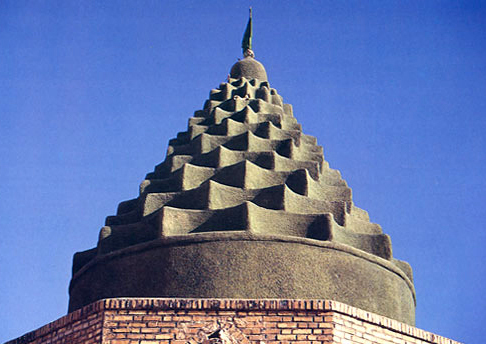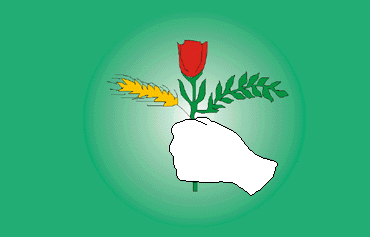|
Iran–Iraq War
The Iran–Iraq War was an armed conflict between Iran and Ba'athist Iraq, Iraq that lasted from September 1980 to August 1988. It began with the Iraqi invasion of Iran and lasted for almost eight years, until the acceptance of United Nations Security Council Resolution 598 by both sides. Iraq's primary rationale for the attack against Iran cited the need to prevent Ruhollah Khomeini—who had spearheaded Iran's Iranian Revolution, Islamic Revolution in 1979—from exporting the new Iranian ideology to Iraq; there were also fears among the Iraqi leadership of Saddam Hussein that Iran, a theocratic state with a population predominantly composed of Shia Islam, Shia Muslims, would exploit Sectarian violence in Iraq, sectarian tensions in Iraq by rallying Iraq's Shia majority against the Ba'ath Party (Iraqi-dominated faction), Baʽathist government, which was officially secular and dominated by Sunni Islam, Sunni Muslims. Iraq also wished to replace Iran as the power player in the Pe ... [...More Info...] [...Related Items...] OR: [Wikipedia] [Google] [Baidu] |
Cold War
The Cold War is a term commonly used to refer to a period of geopolitical tension between the United States and the Soviet Union and their respective allies, the Western Bloc and the Eastern Bloc. The term '' cold war'' is used because there was no large-scale fighting directly between the two superpowers, but they each supported major regional conflicts known as proxy wars. The conflict was based around the ideological and geopolitical struggle for global influence by these two superpowers, following their temporary alliance and victory against Nazi Germany and Imperial Japan in 1945. Aside from the nuclear arsenal development and conventional military deployment, the struggle for dominance was expressed via indirect means such as psychological warfare, propaganda campaigns, espionage, far-reaching embargoes, rivalry at sports events, and technological competitions such as the Space Race. The Western Bloc was led by the United States as well as a number of othe ... [...More Info...] [...Related Items...] OR: [Wikipedia] [Google] [Baidu] |
Khuzestan Province
Khuzestan Province (also spelled Xuzestan; fa, استان خوزستان ''Ostān-e Xūzestān'') is one of the 31 provinces of Iran. It is in the southwest of the country, bordering Iraq and the Persian Gulf. Its capital is Ahvaz and it covers an area of . Since 2014, it has been part of Iran's Region 4. Historically, one of the most important regions of the Ancient Near East, Khuzestan is what historians refer to as ancient Elam, whose capital was in Susa. The Achaemenid Old Persian term for Elam was ''Hujiyā'' when they conquered it from the Elamites, which is present in the modern name. Khuzestan, meaning "the Land of the Khuz", refers to the original inhabitants of this province, the "Susian" people (Old Persian "Huza" or ''Huja'', as in the inscription at the tomb of Darius the Great at Naqsh-e Rostam). They are the Shushan of the Hebrew sources where they are recorded as "Hauja" or "Huja". In Middle Persian, the term evolves into "Khuz" and "Kuzi". The pre-Islamic Parth ... [...More Info...] [...Related Items...] OR: [Wikipedia] [Google] [Baidu] |
Democratic Republic Of Afghanistan
The Democratic Republic of Afghanistan (DRA),, renamed the Republic of Afghanistan, in 1987, was the Afghan state during the one-party rule of the People's Democratic Party of Afghanistan (PDPA) from 1978 to 1992. The PDPA came to power through the Saur Revolution, which ousted the regime of the unelected autocrat Mohammed Daoud Khan; he was succeeded by Nur Muhammad Taraki as the head of state and government on 30 April 1978. Taraki and Hafizullah Amin, the organizer of the Saur Revolution, introduced several contentious reforms during their rule, such as land and marriage reforms and an enforced policy of de-Islamization alongside the promotion of socialism. Amin also added on the reforms introduced by Khan, such as universal education and equal rights for women. Soon after taking power, a power struggle began between the hardline ''Khalq'' faction led by Taraki and Amin, and the moderate ''Parcham'' faction led by Babrak Karmal. The Khalqists emerged victorious and ... [...More Info...] [...Related Items...] OR: [Wikipedia] [Google] [Baidu] |
Shia Islam
Shīʿa Islam or Shīʿīsm is the second-largest branch of Islam. It holds that the Islamic prophet Muhammad designated ʿAlī ibn Abī Ṭālib as his successor (''khalīfa'') and the Imam (spiritual and political leader) after him, most notably at the event of Ghadir Khumm, but was prevented from succeeding Muhammad as the leader of the Muslims as a result of the choice made by some of Muhammad's other companions (''ṣaḥāba'') at Saqifah. This view primarily contrasts with that of Sunnī Islam, whose adherents believe that Muhammad did not appoint a successor before his death and consider Abū Bakr, who was appointed caliph by a group of senior Muslims at Saqifah, to be the first rightful (''rāshidūn'') caliph after Muhammad. Adherents of Shīʿa Islam are called Shīʿa Muslims, Shīʿītes, or simply Shīʿa or Shia. Shīʿa Islam is based on a ''ḥadīth'' report concerning Muhammad's pronouncement at Ghadir Khumm.Esposito, John. "What Everyone Nee ... [...More Info...] [...Related Items...] OR: [Wikipedia] [Google] [Baidu] |
Hezbollah
Hezbollah (; ar, حزب الله ', , also transliterated Hizbullah or Hizballah, among others) is a Lebanese Shia Islamist political party and militant group, led by its Secretary-General Hassan Nasrallah since 1992. Hezbollah's paramilitary wing is the Jihad Council, and its political wing is the Loyalty to the Resistance Bloc party in the Lebanese Parliament. After the Israeli invasion of Lebanon in 1982, the idea of Hezbollah arose among Lebanese clerics who had studied in Najaf, and who adopted the model set out by Ayatollah Khomeini after the Iranian Revolution in 1979. After failing to agree on a name for the new organisation, the party's founders adopted the name chosen by Ayatollah Khomeini, Hezbollah. The organization was established as part of an Iranian effort, through funding and the dispatch of a core group of Islamic Revolutionary Guard Corps (pasdaran) instructors, to aggregate a variety of Lebanese Shia groups into a unified organization to resist th ... [...More Info...] [...Related Items...] OR: [Wikipedia] [Google] [Baidu] |
Islamic Dawa Party
The Islamic Dawa Party, also known as the Islamic Call Party ( ar, حزب الدعوة الإسلامية, Ḥizb ad-Daʿwa al-Islāmiyya), is an Shia Islamist political party in Iraq. Dawa and the Supreme Islamic Iraqi Council are two of the main parties in the religious- Shiite United Iraqi Alliance, which won a plurality of seats in both the provisional January 2005 Iraqi election and the longer-term December 2005 election. The party is led by Haider al-Abadi, who was the Prime Minister of Iraq from 8 September 2014 to 25 October 2018. The party backed the Iranian Revolution and also Ayatollah Ruhollah Khomeini during the Iran–Iraq War and the group still receives financial support from Tehran despite ideological differences with the Islamic Republic. History Hizb Al-Dawa was formed in 1957 by Mohammed Saqik. His aim was to create a party and a movement which would promote Islamic values and ethics, political awareness, combat secularism, and create an Islamic state in ... [...More Info...] [...Related Items...] OR: [Wikipedia] [Google] [Baidu] |
Islamic Supreme Council Of Iraq
The Islamic Supreme Council of Iraq (ISCI or SIIC; ar, المجلس الأعلى الإسلامي العراقي ''Al-Majlis Al-A'ala Al-Islami Al-'Iraqi''; previously the party was known as the Supreme Council for the Islamic Revolution in Iraq, SCIRI) is a Shia Islamist Iraqi political party. It was established in Iran in 1982 by Mohammed Baqir al-Hakim and changed its name to the current Islamic Supreme Council of Iraq in 2007. Its political support comes from Iraq's Shia Muslim community. Prior to his assassination in August 2003, SCIRI was led by Ayatollah Mohammed Baqir al-Hakim; afterwards it was led by the Ayatollah's brother, Abdul Aziz al-Hakim. After Abdul Aziz al-Hakim's death in 2009 his son Ammar al-Hakim became the group's new leader. In light of its gains in the three 2005 elections and government appointments, the Supreme Iraqi Islamic Council became one of Iraq's most powerful political parties and was the largest party in the Iraqi Council of Representativ ... [...More Info...] [...Related Items...] OR: [Wikipedia] [Google] [Baidu] |
Patriotic Union Of Kurdistan
The Patriotic Union of Kurdistan (PUK; ku, یەکێتیی نیشتمانیی کوردستان, translit=Yekîtiya Nîştimanî ya Kurdistanê) is a political party active in Kurdistan Region and the disputed territories in Iraq. The PUK describes its goals as self-determination, human rights, democracy and peace for the Kurdish people of Kurdistan and Iraq. The PUK is currently under the leadership of Bafel Talabani. The PUK was founded in 1975 by Jalal Talabani, Nawshirwan Mustafa, Fuad Masum, Adel Murad, Ali Askari and Abdul Razaq Feyli. All presidents of Iraq under the 2005 constitution have been from this party. History Discontent within the Kurdistan Democratic Party (KDP) The PUK traces its political heritage to Sulaymaniyah native Ibrahim Ahmad. After the collapse of the Soviet-backed Kurdish Mahabad Republic in Iran in early 1947, Ibrahim Ahmad, previously the Sulaymaniyah representative of the Iranian KDP ( KDP-I), joined the newly formed Iraqi KDP. Ahmad wa ... [...More Info...] [...Related Items...] OR: [Wikipedia] [Google] [Baidu] |
Kurdistan Democratic Party
The Kurdistan Democratic Party ( ku, Partiya Demokrat a Kurdistanê; پارتی دیموکراتی کوردستان), usually abbreviated as KDP or PDK, is the largest party in Iraqi Kurdistan and the senior partner in the Kurdistan Regional Government. It was founded in 1946 in Mahabad in Iranian Kurdistan. The party states that it combines "democratic values and social justice to form a system whereby everyone in Kurdistan can live on an equal basis with great emphasis given to rights of individuals and freedom of expression." The KDP is dominated by the Barzani tribe and described as a Kurdish nationalist big tent party. History Foundation In 1946, the leader of the Soviet-backed Republic of Mahabad, Qazi Muhammad, announced the formation of a "Kurdish Democratic Party" based in Iran, or Eastern Kurdistan. The Soviet Union, then supporting the Kurdish national struggle against the monarchies of Iran and Iraq, instructed Mustafa Barzani to place himself under the ... [...More Info...] [...Related Items...] OR: [Wikipedia] [Google] [Baidu] |
United Nations Security Council Resolution 598
United Nations Security Council resolution 598 S/RES/0598 (1987), (UNSC resolution 598) adopted unanimously on 20 July 1987, after recalling Resolution 582 and 588, called for an immediate ceasefire between Iran and Iraq and the repatriation of prisoners of war, and for both sides to withdraw to the international border. The resolution requested the Secretary-General to dispatch a team of observers to monitor the ceasefire while a permanent settlement was reached to end the conflict. It became effective on 8 August 1988, ending all combat operations between the two countries and the Iran–Iraq War. Khomeini had been quoted about his opinion on the ceasefire where he stated "Happy are those who have departed through martyrdom. Unhappy am I that I still survive.… Taking this decision is more deadly than drinking from a poisoned chalice. I submitted myself to Allah's will and took this drink for His satisfaction" after announcing that Iran had signed a ceasefire with Iraq (20 Jul ... [...More Info...] [...Related Items...] OR: [Wikipedia] [Google] [Baidu] |

.png)


